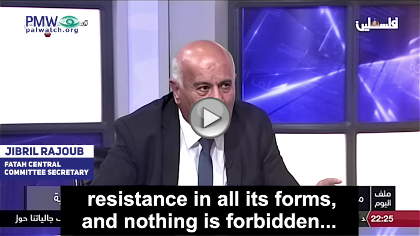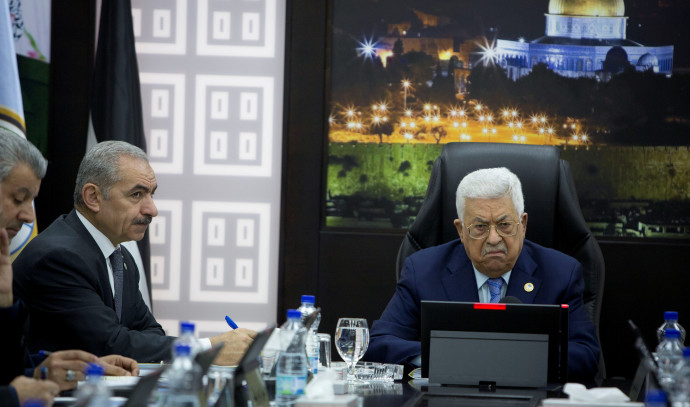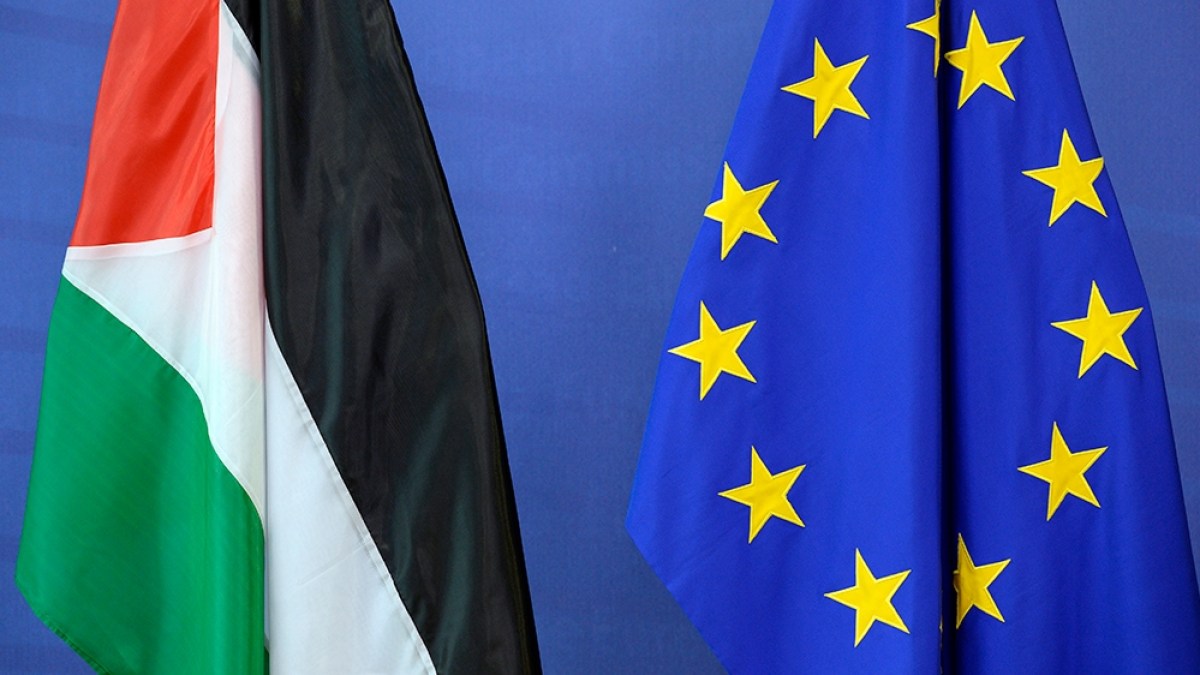San Souci
Diamond Member
- Feb 4, 2020
- 7,574
- 5,899
- 1,940
RE: Who Are The Palestinians? Part 2
⁜→ San Souci, et al,
I think that largely, what you say is true. But I always look at the intent of the pro-Arab Palestinians when they use these names. The common usage is already a matter of fact(no matter who or when it came into being).
(COMMENT)Still bogus. The Jews who LIVED there never called it that. There is no "Palistine" in the koran. There is no verse that the vile usurper Mohammad ever WENT to Jerusalem. The Ottoman Empire did not really emphasize that vile name. It was always "The Holy Land" to the Crusaders. The Byzantines called it The Holy Land. But it does not matter. There have never been, are not ,and will never BE Palistinians. They are ARAB Terrorists. PERIOD. As far as Land? Before the 6 day war, Gaza was owned by Egypt. West Bank was owned by Jordan.
In the Blue Book titled the UNQuestion of Palestine is a classic example. On page 5 • Paragraph 1, the UN uses phrases like:
◈ "Mandate over Palestine"◈ "Jewish Agency for Palestine"◈ "spoke for the Palestinian Arabs"
We may disagree on the meaning, application, or the usage, but the name is here to stay (notwithstanding its origin). To discuss its etymology is a futile effort to put forward a point. Even the International Criminal Court (ICC) uses the terminology:
◈ "State of Palestine"◈ "occupied Palestinian territory"◈ "Palestine Situation"
Just my thought...
View attachment 355829View attachment 355830
Most Respectfully,
R
Historian Bernard Lewis on the invention of the palestinians...
The Israeli conquests in the Six Day War in 1967 had another important consequence--the emergence of the Palestinian Arabs as a combatant force in the conflict, with a strong and growing sense of a common Palestinian identity and, ultimately, nationhood. The formation of this sense of identity began with the establishment of the British Mandate and the creation of a new and separate political entity called Palestine with different rulers, different institutions and above all different problems from those of the neighboring lands with which they had previously been associated. Already in the 1920s, Arab journalists and politicians began to speak of "the Palestine National Movement" and sometimes even of the Palestinian nation. But this was exclusively in the context of the struggle against British rule and Jewish immigration. Their basic sense of corporate historic identity was, at different levels, Muslim or Arab or--for some--Syrian; it is significant that even by the end of the Mandate in 1948, after thirty years of separate Palestinian political existence, there were virtually no books in Arabic on the history of Palestine, the few exceptions being textbooks prepared for use in the Mandatory government's schools.
The establishment of Israel and the Arab exodus accelerated and transformed the development of Palestinian national consciousness.
A new era began with the establishment of Israel and the Arab exodus. From the manner of their departure from Israel, perhaps still more from the manner of their reception in the neighboring Arab countries, where they were for the most part confined in camps and, with the exception of Jordan, refused citizenship, the Palestinian Arabs acquired a much stronger sense of identity, based on common experience, and a sense of common suffering, need, and destiny.
The Palestine Liberation Organization was founded in 1964, but it did not become a factor until after the war of 1967. The policies of the Arab governments had failed; their armies had been defeated. The PLO offered a new policy and aspiration, and a new method of waging war against the Israeli enemy. Both of these won considerable support among the Palestinians, especially in the camps which before long came under PLO control.
From 1967 onward the PLO played a prominent, some indeed would say the leading role, in the Arab war against Israel. The Arab states, naturally enough, we're now principally concerned with the recovery of their own lost territories, and, increasingly, with the open pursuit of their own national interests.
While the Arab governments and armies projected an image of defeat and impotence, even to their own peoples, the PLO in contrast was creating a new image of the Arab as a daring revolutionary freedom fighter. In this image, the Arab was portrayed as fighting alone against vastly superior forces instead of, as previously, fighting unsuccessfully against a smaller and weaker enemy. Correspondingly, the Israeli David fighting boldly against the Arab League Goliath suddenly became a Jewish Goliath trying to kill the PLO David.even by the end of the Mandate in 1948, after thirty years of separate Palestinian political existence, there were virtually no books in Arabic on the history of Palestine,
It was a Brittish COLONY . And the "Palistinians" ,according to the Brits ,were the Jews.
Not even a British colony: Palestine was merely Britain’s nickname for the British Mandate, created at the urging of Jews in order to implement the Balfour Declaration for the establishment of a Jewish National Home. British Mandate and palestine ceased to exist in 1948 with Israeli statehood.
I am aware of this. But I am a bit more hard line on this subject ,since my old man immigrated here from Israel in 1949.
RE: Who Are The Palestinians? Part 2
⁜→ San Souci, et al,
I think that largely, what you say is true. But I always look at the intent of the pro-Arab Palestinians when they use these names. The common usage is already a matter of fact(no matter who or when it came into being).
(COMMENT)Still bogus. The Jews who LIVED there never called it that. There is no "Palistine" in the koran. There is no verse that the vile usurper Mohammad ever WENT to Jerusalem. The Ottoman Empire did not really emphasize that vile name. It was always "The Holy Land" to the Crusaders. The Byzantines called it The Holy Land. But it does not matter. There have never been, are not ,and will never BE Palistinians. They are ARAB Terrorists. PERIOD. As far as Land? Before the 6 day war, Gaza was owned by Egypt. West Bank was owned by Jordan.
In the Blue Book titled the UNQuestion of Palestine is a classic example. On page 5 • Paragraph 1, the UN uses phrases like:
◈ "Mandate over Palestine"◈ "Jewish Agency for Palestine"◈ "spoke for the Palestinian Arabs"
We may disagree on the meaning, application, or the usage, but the name is here to stay (notwithstanding its origin). To discuss its etymology is a futile effort to put forward a point. Even the International Criminal Court (ICC) uses the terminology:
◈ "State of Palestine"◈ "occupied Palestinian territory"◈ "Palestine Situation"
Just my thought...
View attachment 355829View attachment 355830
Most Respectfully,
R
Historian Bernard Lewis on the invention of the palestinians...
The Israeli conquests in the Six Day War in 1967 had another important consequence--the emergence of the Palestinian Arabs as a combatant force in the conflict, with a strong and growing sense of a common Palestinian identity and, ultimately, nationhood. The formation of this sense of identity began with the establishment of the British Mandate and the creation of a new and separate political entity called Palestine with different rulers, different institutions and above all different problems from those of the neighboring lands with which they had previously been associated. Already in the 1920s, Arab journalists and politicians began to speak of "the Palestine National Movement" and sometimes even of the Palestinian nation. But this was exclusively in the context of the struggle against British rule and Jewish immigration. Their basic sense of corporate historic identity was, at different levels, Muslim or Arab or--for some--Syrian; it is significant that even by the end of the Mandate in 1948, after thirty years of separate Palestinian political existence, there were virtually no books in Arabic on the history of Palestine, the few exceptions being textbooks prepared for use in the Mandatory government's schools.
The establishment of Israel and the Arab exodus accelerated and transformed the development of Palestinian national consciousness.
A new era began with the establishment of Israel and the Arab exodus. From the manner of their departure from Israel, perhaps still more from the manner of their reception in the neighboring Arab countries, where they were for the most part confined in camps and, with the exception of Jordan, refused citizenship, the Palestinian Arabs acquired a much stronger sense of identity, based on common experience, and a sense of common suffering, need, and destiny.
The Palestine Liberation Organization was founded in 1964, but it did not become a factor until after the war of 1967. The policies of the Arab governments had failed; their armies had been defeated. The PLO offered a new policy and aspiration, and a new method of waging war against the Israeli enemy. Both of these won considerable support among the Palestinians, especially in the camps which before long came under PLO control.
From 1967 onward the PLO played a prominent, some indeed would say the leading role, in the Arab war against Israel. The Arab states, naturally enough, we're now principally concerned with the recovery of their own lost territories, and, increasingly, with the open pursuit of their own national interests.
While the Arab governments and armies projected an image of defeat and impotence, even to their own peoples, the PLO in contrast was creating a new image of the Arab as a daring revolutionary freedom fighter. In this image, the Arab was portrayed as fighting alone against vastly superior forces instead of, as previously, fighting unsuccessfully against a smaller and weaker enemy. Correspondingly, the Israeli David fighting boldly against the Arab League Goliath suddenly became a Jewish Goliath trying to kill the PLO David.even by the end of the Mandate in 1948, after thirty years of separate Palestinian political existence, there were virtually no books in Arabic on the history of Palestine,
It was a Brittish COLONY . And the "Palistinians" ,according to the Brits ,were the Jews.
Not even a British colony: Palestine was merely Britain’s nickname for the British Mandate, created at the urging of Jews in order to implement the Balfour Declaration for the establishment of a Jewish National Home. British Mandate and palestine ceased to exist in 1948 with Israeli statehood.
I am aware of this. But I am a bit more hard line on this subject ,since my old man immigrated here from Israel in 1949.
Palestine was a European Christian name for Jews’ homeland, like Terra Sancta or Holy Land. The British adopted the name, as well. The British Palestine Exploration Fund founded in the 19th century still exists in London.
But It STILL never really existed in History. Except as a hissy fit done by Caesar. There never was a 'Race" of "Palistinians". Or Ethnic group. Or whatever. That is the point I am making. Yasser Arafat was a terrorist murderer worse than Hitler.
The name palestine was coined by a Greek writer Herodotus designating the Mediterranean coast inhabited by the Philistines, raiders from the Greek world. Later, the Romans applied the name palaestina to Jews’ country, and Europeans anglicized it to palestine. So, it has been a European term for land associated with other Europeans. There never was a place palestine founded by any Middle Eastern people.
We seem to be on the same page. Once again. I will go one further. The term "Philistine" is a translation from an Aramaic word meaning "Invader". What these invaders called themselves is not really known. They came from Crete. Phoenicians? Maybe. They were defeated by Israel and then TOTALLY wiped out by Sargon 2 of Assyria. The ARABS are not "Palistinians ,or Philistines ,or anything else. Just Arab Terrorists who have NO claim to Israel.
The word philistine is German in origin, from philister. The philistines didn’t even call themselves philistines. The Hebrew Bible calls them peleshtim, meaning invaders, from Crete. DNA research confirms their Aegean origin.
Like I said. Just confirms that Arafats PLO is totally based on lies.






